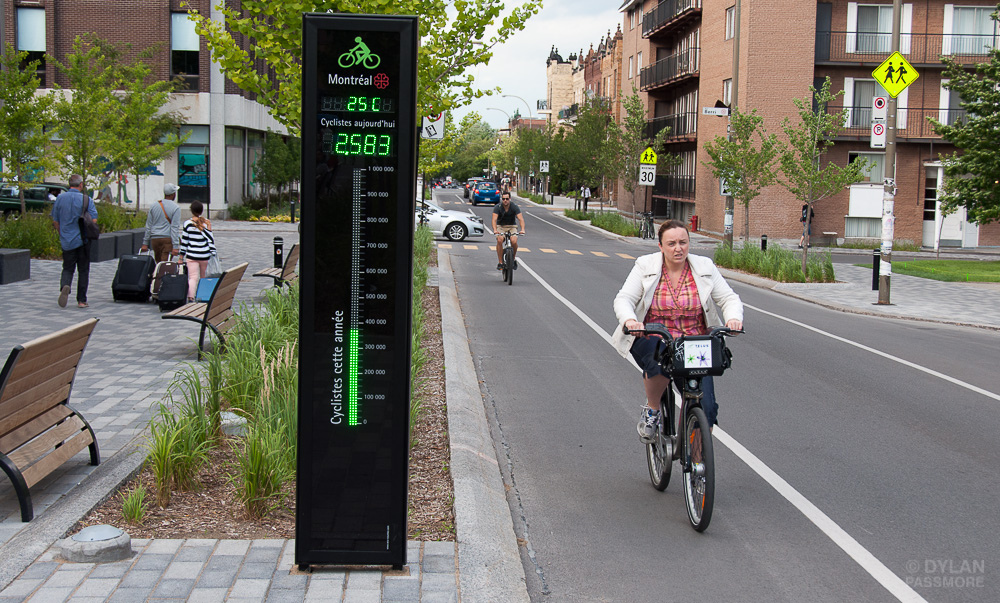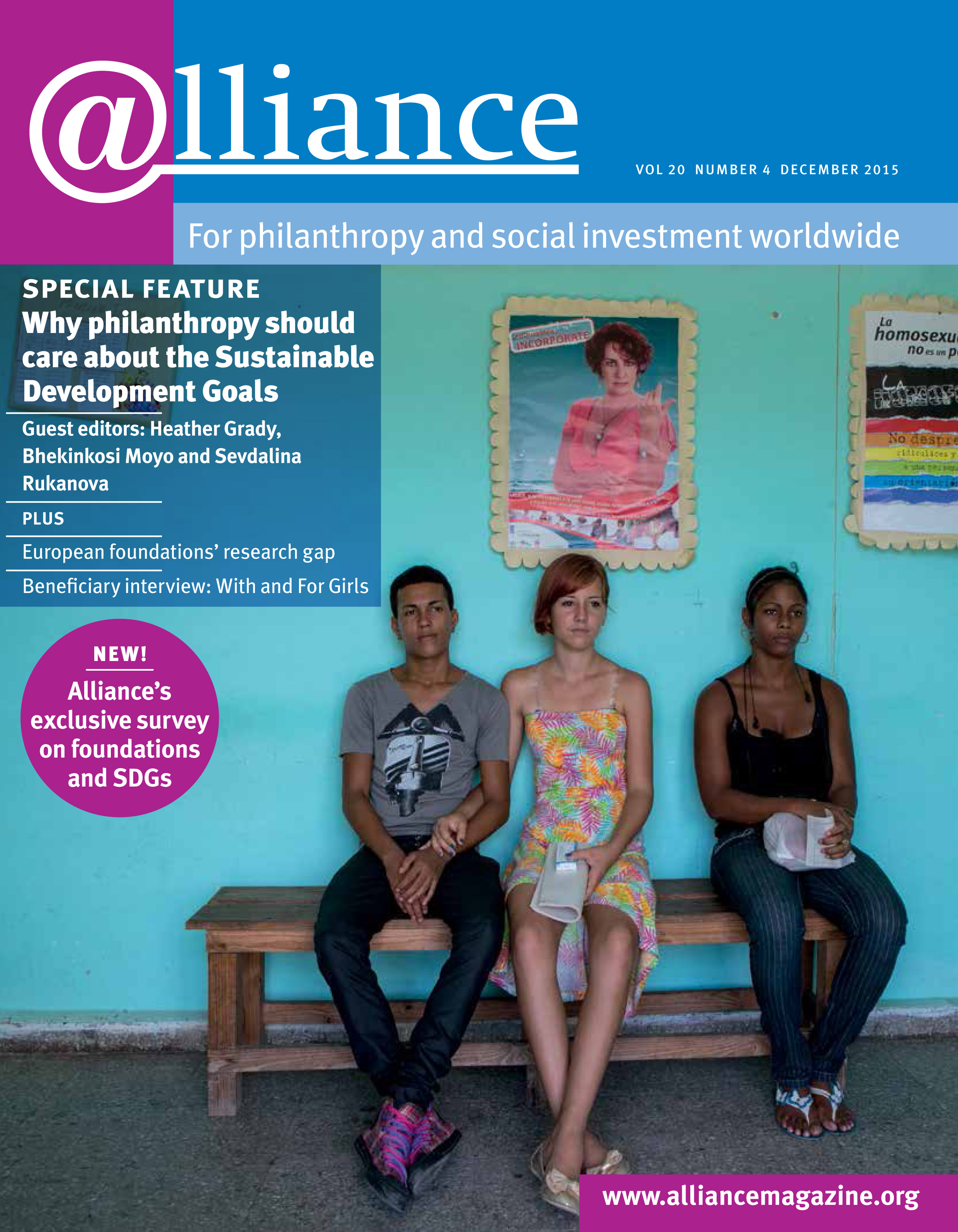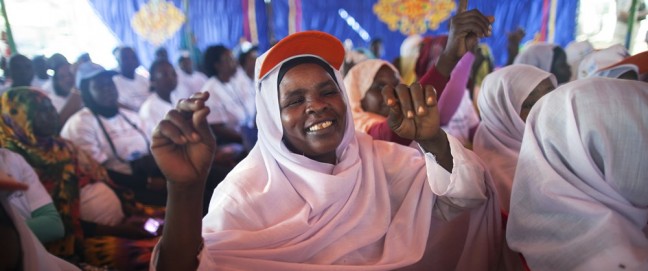Robust data systems, currently beyond the capacity of many developing nations, will be fundamental to ensuring the global adoption of the Sustainable Development Goals. Philanthropy can jump-start that process.
Foundations should take a moment to compare the goals of their work with the SDGs to see whether an opportunity for mutually reinforcing work exists.
In particular, foundations should familiarize themselves with the indicators of change that have been developed to account for progress towards each goal. These are the numbers that the world will be watching to see if progress is being made, and they will quickly become one of the most important yardsticks against which the impact of any foundation working in an area related to the SDGs will be measured.
How will philanthropy, or any other investor for that matter, know whether they are making progress against these or any other yardsticks? By building robust data collection systems and methods for regularly collecting high quality data on what has been invested, how the funds were deployed, and what results were achieved. Of course, this is much easier said than done.
‘The biggest obstacle by far to collecting the data needed to measure progress is capacity.’
The biggest obstacle by far to collecting the data needed to measure progress is capacity. Over and beyond the capacity challenges faced by countries and localities in collecting data, which are anything but trivial, philanthropy has its own challenges. Even something as seemingly straightforward as collecting data on foundation expenditures is not a given.
Foundations are islands of private entrepreneurship. They set their own goals and devise their own programmes for pursuing them. To the extent that they document their expenditures, they tend to do so in their own ways. And national accountability regimes vary considerably regarding the types and amounts of information foundations must provide about their activities. Further, governments have traditionally collected such information mostly for purposes of monitoring compliance with regulations rather than for building a coherent picture of philanthropy’s cumulative investments.

Robust data systems are currently beyond the capacity of many developing nations. Credit: Dylan Passmore
So, in many places in the world, philanthropy is starting more or less from scratch to articulate information needs, build data collection systems, incentivize data sharing, and analyse and interpret the data. Aligning such data collection strategies with the data collection needs associated with the SDGs is yet another level of complication that needs to be factored in. But to the extent that the SDGs and associated indicators can be used as a head start in the process of building serviceable data collection systems, philanthropy should take advantage of that.
This is one of the most promising aspects of the development and adoption of the SDGs at this moment in time. Philanthropy, rarely quick out of the gate when it comes to collecting, sharing and learning from data, has a unique opportunity to jump-start this process, both globally and nationally.
Foundations will, of course, come along at their own speeds. But, unlike 15 years ago when the Millennium Development Goals were created, this time foundations will have comprehensive information resources available to assist them in aligning their work with the Sustainable Development Goals.
Among the most promising of these resources is the SDG Philanthropy Platform – developed by Rockefeller Philanthropy Advisors, the United Nations Development Program, and Foundation Center – whose purpose is to pave the way for greater and more intentional participation of foundations in realizing the promise of the SDGs and to document their progress in pursuing these goals. Through multi-stakeholder partnerships at the country and global levels, this project focuses on building greater capacity and a better environment for philanthropic organizations to support SDG implementation at three levels:
- Development policymaking.
- Global and country‑level coordination among implementing partners.
- Strategic points of entry to this work for individual foundations.
Since its inception just one year ago, the SDG Philanthropy Platform has:
- Created a track for philanthropy to engage with the government- and UN-led SDG process and to participate in formative events and activities.
- Developed country-level pilots for philanthropic collaboration with local partners in Colombia, Ghana, Kenya and Indonesia.
- Created new knowledge products on philanthropic contributions to sustainable development, including reports, case studies, mapping of foundations in countries, and videos.
- Reached out to more than 1,000 foundations globally and in pilot countries and facilitated greater awareness of philanthropy’s role in promoting the new SDGs.
- Built org, a credible and accessible online data and knowledge portal on philanthropic giving related to development goals.
The centrepiece of the platform is SDGfunders.org, which will serve as a knowledge exchange for foundations seeking to explore the potential of aligning their work with the SDGs. To prime foundations for the SDG-related work to come, SDGfunders.org has already documented more than $30 billion in grantmaking by US and non-US foundations since 2002 that aligns with the Millennium Development Goals. The site also tracks Official Development Assistance spending for the MDGs over the same period and shows the relationship between the two funding flows. Users can also view case studies and a curated feed of research reports, evaluations and lessons learned that synthesize some of the results of investment in the MDGs. Once the SDG investments begin in 2016, the site will switch to an SDG framework for tracking philanthropic and ODA investments over time.
The world is different in critically important ways than it was 15 years ago when the Millennium Development Goals were adopted. We are much more data-literate. We use enormous quantities of data and sophisticated tools, with powerful interfaces to organize virtually every aspect of our personal and work lives. Data, computer processing power, and storage are inexpensive and growing exponentially.
‘We have an unprecedented opportunity to start the SDG process with strong baseline data, track the investments of philanthropy and the global community, and take on the difficult challenge of measuring true progress.’
Foundations have almost instantaneous access to data that can answer philanthropy’s two primordial questions: 1) who is funding what, where? and 2) how can I know what other foundations know? Organizations such as Worldwide Initiatives for Grantmaker Support (WINGS), country-level foundation associations that have emerged all over the world during the first 15 years of the new millennium, and Foundation Center are linking foundations and their knowledge with each other in ways that could only be dreamt of in 2000. We are not starting at zero in our efforts to tackle the world’s most pressing issues. In short, we have an unprecedented opportunity to start the SDG process with strong baseline data, track the investments of philanthropy and the global community, and take on the difficult challenge of measuring true progress.
Few would disagree that one of philanthropy’s enduring strengths is its ability to think for itself and to follow a deliberately chosen path, intentionally and faithfully over time, no matter which direction the winds of public sentiment may be blowing. But philanthropy has also begun to understand that collaboration is key to achieving big wins. The SDGs present philanthropy with a collaborative opportunity that could make a fundamental difference on a global scale.
Larry McGill is vice president for research at the Foundation Center. Email ltm@foundationcenter.org
Counting on sustainability
The United Nations’ Independent Expert Advisory Group on a Data Revolution (IEAG) for Sustainable Development developed the following recommendations for building data needed to track the SDGS:
Foster and promote innovation to fill data gaps. Experimentation is needed to understand how to bend traditional and new data sources for better and faster data on sustainable development, developing new infrastructures for data development and sharing – such as a ‘world statistics cloud’ – and innovations that improve the quality and reduce the costs of producing public data.
Mobilize resources to overcome inequalities between developed and developing countries and between data-poor and data-rich people. Increased funding and resources are required to develop national capacity and global data literacy – and for public-private partnerships to attract private sector resources and knowledge.
Lead and coordinate efforts to enable the data revolution to play its full role in the realization of sustainable development. Stakeholders need to work together to improve cooperation between old and new data producers, ensure the engagement of data users, and develop global ethical, legal and statistical standards to improve data quality and protect people from abuses in a rapidly changing data ecosystem.
The IEAG also catalogues organizations working together to build the capacity for countries to develop effective data collection and analysis systems and coordinate with global goals (http://www.undatarevolution.org/catalog/2).
You can also participate in SDGFunders.org.
For more discussion on the SDG debate, listen to our Alliance Audio podcast.






Comments (0)